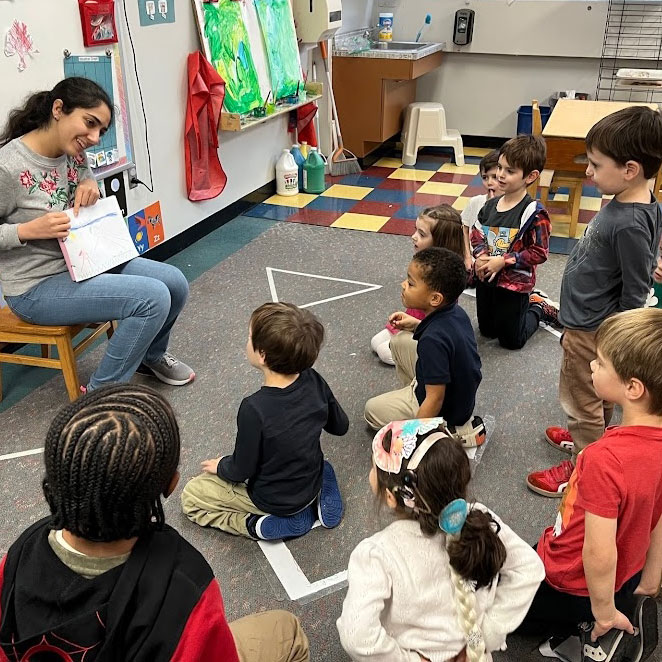
Graduate Student Training
Graduate Training Program at The River School
The River School serves as an internship site for students in graduate training programs in Speech Language Pathology, Audiology, Occupational Therapy, Clinical Psychology and Education. Throughout the school year, graduate students work at The River School alongside our team as part of their university's program for earning a masters or doctorate degree. University affiliations include:
- American University
- Emerson College
- Gallaudet University
- George Washington University
- Georgetown University
- Loyola University
- New York University
- Shenandoah University
- The University of Florida
- University of Maryland
- University of South Carolina
- Vanderbilt University
If you want information about doing an internship with us or placing students, please reach out to the Clinical Director, Meredith Ouellette.
Audiology Internship and Externship Program
The River School will accept applications for 2nd year graduate student placements. The graduate trainee will work directly with one of our full-time classroom-based Speech Language Pathologists and be provided with opportunities to assess students with hearing loss and provide direct treatment.
Training will include opportunities to design and implement thematic curriculum areas, ensure that students achieve goals and objectives of the curriculum, document progress of all students in all developmental domains, and collaborate with the educator to support acquisition of spoken language skills in the students using a transdisciplinary model.
For more information, please contact Robin Goffen.
Occupational Therapy Fieldwork Program
The River School will accept applications for Level 1 and Level 2 students. The graduate trainee will work closely with our full-time Occupational Therapist and be provided with opportunities to practice assessment, treatment and consultation skills inside a school and outpatient clinic setting. For more information, please contact Sara Haley.
Speech Language Pathology Internship Program
The River School will accept applications for 2nd year graduate student placements. The graduate trainee will work directly with one of our full-time classroom-based Speech Language Pathologists and be provided with opportunities to assess students with hearing loss and provide direct treatment.
Training will include opportunities to design and implement thematic curriculum areas, ensure that students achieve goals and objectives of the curriculum, document progress of all students in all developmental domains, and collaborate with the educator to support acquisition of spoken language skills in the students using a transdisciplinary model.
For more information, please contact Robin Goffen.
Clinical Psychology Externship
The River School will accept applications for two externs for the 2026-27 school year (August through Mid-June; 16 hours per week). The extern will work closely with the program director and be provided with opportunities to immerse in the practice of early childhood development, education, and oral/deaf education. Clinical research and training in child language and development are cornerstones of the externship experience.
Extern responsibilities and activities include:
- Conducting comprehensive cognitive and psychoeducational evaluations (3 months – 9 years of age)
- Obtaining experience using a variety of cognitive, developmental and achievement assessment measures
- Gaining experience in child observations in a clinical and educational setting
- Planning and leading social skills groups with elementary-age students
- Participating in/facilitating support groups for parents of children with hearing differences
- Interacting with our multidisciplinary team (Educators, Speech and Language Therapists, Audiologists, and more) within an educational and clinical setting
- Classroom consultation and push-in support
- Opportunities to participate in research
For a comprehensive program description and to apply, email Dr. Dorothy White.
